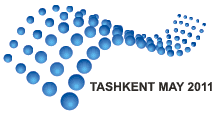
Towards the 6th World Water Forum — Cooperative Actions for Water Security
International Conference
Charter of Global Water Security
Draft
1. Water is a common, social and natural resource, which first must be used for meeting drinking and household needs, nutrition and food production (irrigated agriculture) needs, for ensuring health, diet, minimal livelihoods and well-being of population, especially of vulnerable people, for meeting environmental demands, as well as conservation and development flora and fauna.
2. Water needs to serve the purpose of cooperation and by no means should become a cause of conflict. Any meeting of interest related to quantity and quality of water between interested sides needs to be decided on the base of mutual respect.
3. Water is the nature’s gift, without which no life is possible on the Earth. Everyone has the right to life and, hence, to natural water. Therefore, in no circumstance, water in the open natural water bodies (oceans, seas, lakes, and rivers) can be considered as a commodity.
4. Equitable and reasonable access to water for each is an ethic, moral, and legal right guaranteed by the State in quantity, which meets the physical standards and the most appropriate technologies.
5. Each user must practice water saving by avoiding its wastage, protecting quality of water in the sources from pollution and deterioration, timely covering costs related to water production, conveyance and application.
6. The right of environment to water needs to be protected in both humid and dry conditions, avoiding disappearance or catastrophic reduction of natural water areas.
7. Nobody may violate the right to trans-boundary waters and equal access to equitable use (rational use according to the actual needs and existing potential) by all countries within a river basin. If overall demand growths or resource becomes over-exploited, it is essential to transfer to up-to-date water supply and water use technologies by consent and upon agreement among riparian countries in a river basin.
8. Nobody has a right to modify flow regimes in rivers in a way that causes artificial droughts or floods.
9. Any action on trans-boundary waters, including construction of large hydraulic structures, may be undertaken only provided that the findings of independent international expertise are positive and with consent of all riparian states-users and must harm or cause damage to upstream or downstream states. In this regard, those states need to be informed about any planned activity, which may have possible adverse effects, and where appropriate riparian states cooperate, and upon consent take the needed expertise for design criteria, assessment of impacts and mitigation measures.
10. The system of national water governance should be built in form of sustainable body of legal and social rules and norms that cover all water hierarchical levels and all aspects of social life, including economy and environment. Consequently, this will ensure the guarantee of water for the nature and human.
